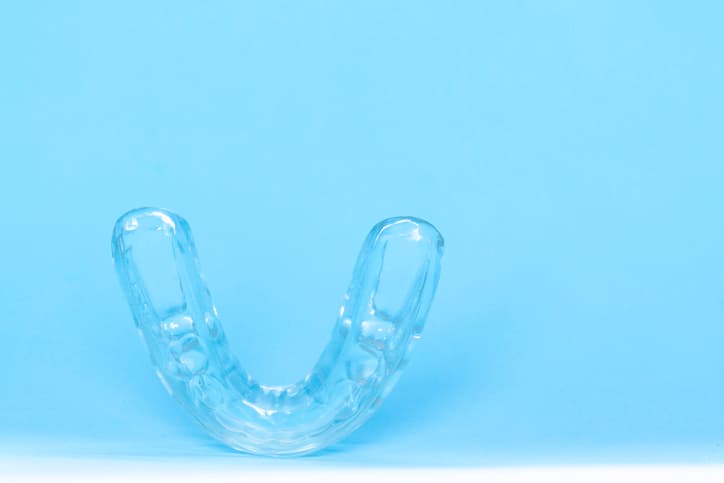Bruxism,
You Chip a Tooth
Not only will a chipped tooth require dental care for repair, but it can also be a sign that your teeth grinding has become more serious. As you touch your teeth together and grind back and forth, you can put a lot of pressure on the enamel — in your sleep, no less — than you could actually damage your teeth. This can be expensive to fix and can even lead to potential cavities, so it’s best to talk to your dentist about a mouth guard before you chip more teeth.
You Have Chronic Grinding
Some people grind periodically because of temporary issues, such as stress at work. If your bruxism is chronic, meaning you grind most nights, it’s probably best to see your dentist about a mouth guard for teeth grinding. While it won’t stop the actual clenching of your jaw, a mouth guard, also known as a night guard, can help minimize the negative effects on your teeth if you’re grinding every night.
You Wake Up with a Headache
Do you feel as though you have a raging headache every morning? It could be the result of nightly grinding. A mouth guard won’t stop you from grinding altogether, but it may help. Talk to your dentist about what options are available to you. MedlinePlus suggests relaxation exercises to help you wind down at night so that you’ll be less likely to grind. Your dentist can suggest other ways to minimize teeth grinding.
You Have Temporomandibular Joint Disorder
Temporomandibular joint disorder (TMJ/D) occurs when the muscles around the jaw become inflamed, which sometimes happens as the result of clenching the teeth together and grinding against the teeth. If your dentist diagnoses you with this disorder, ask about a mouth guard or night guard. The guard will help prevent your teeth from clenching and grinding, thus reducing some of the pain associated with TMJ/D.
You Take Antidepressants
If you regularly take antidepressants, talk to your dentist about a mouth guard. A study published in a 2012 issue of Clinics found that paroxetine, the main ingredient in some antidepressants, can cause nighttime teeth grinding. If you take certain medicines, such as Paxil, you may need to protect your teeth against those side effects. You can also talk to your doctor about adjusting your dosage or switching to another antidepressant if grinding becomes a problem.
Teeth grinding is a common issue, but you shouldn’t have to suffer. By making an appointment with your dentist, you can set up a time to talk about mouth guards and other ways to help cope with and manage the behaviour.
